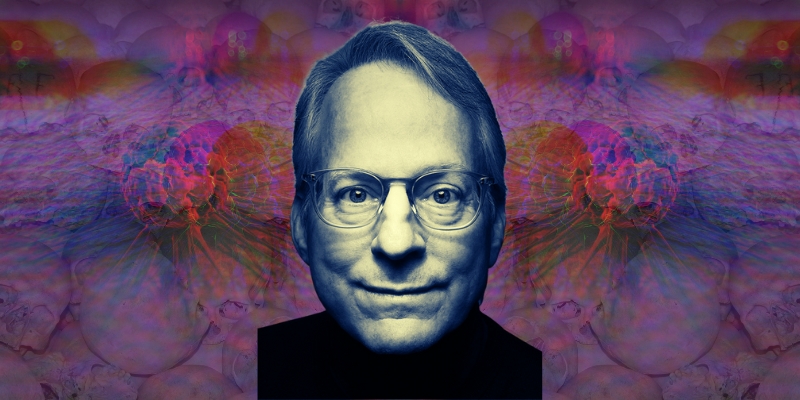
The Craft of This Mortal Coil: Jonathan Gluck on Writing a Different Cancer Story
Terry McDonell in Conversation with the Author of “An Exercise in Uncertainty”
When Jonathan Gluck learned he had cancer, he was struck dumb. Just thirty-eight-years-old and the first-time father of a seven-month-old daughter, he had no family history of the disease and, besides a sore hip, no other symptoms of illness. He was told he had eighteen months to live.
Now, more than twenty years later, Gluck brings us An Exercise in Uncertainty, a memoir documenting his long and ongoing struggle with a rare and incurable form of blood cancer called multiple myeloma.
Gluck’s survival story navigates what Susan Orlean calls “the dire straits of mortality” with eloquence, wit, and intelligence. The book also explores the idea of uncertainty through the lens of someone who has been forced to face mortality on a daily basis for decades. Gluck will be the first to tell you he wishes he never had cancer.
At the same time, his illness has given him unique insight into how to live.
*
Terry McDonell: There’s some thinking among publishers that books about cancer are depressing and don’t sell. What do you think about that?
Jonathan Gluck: I understand the impulse to think that way. Cancer can be depressing. But there’s plenty of evidence to believe that theory isn’t true.
Take Suleika Jaouad’s Between Two Kingdoms, Michelle Zauner’s Crying in H Mart, and Siddhartha Mukherjee’s The Emperor of All Maladies, to name just a few examples. They cover cancer from a variety of angles and were all both phenomenal reads and commercially successful.
And books about cancer don’t have to be depressing. They can also be, and often are, informative, inspiring, and even funny.
TMD: What makes An Exercise in Uncertainty different from other cancer memoirs?
Books about cancer don’t have to be depressing.
JG: Because it’s a memoir, it’s about me, of course. But it’s not only about me. It’s about me as a member of a new and growing group of people.
Thanks to radical advances in modern medicine, many people are living with cancer longer than ever, some of us for years if not decades. Those of us in this group make up a new kind of zombie race. We’re destined to exist—forever—not half alive and half dead but half sick and half well.
I call us cancer zombies. What I’ve set out to do is to document what life is like for this strange, new cohort of humans—how it affects not just our physical health, but our mental health, our marriages, our families, our careers, our finances, everything.
TMD: You’ve spent most of your professional life as an editor (deputy editor at New York Magazine, managing editor of Vogue). What was it like to be on the other side of the editor-writer equation?
JG: Having doled out my share of story notes to writers, I like to think I was more tolerant of feedback than I might otherwise have been. I mean, what kind of a hypocrite would I be if I weren’t?
That said, it’s never fun or easy to hear criticism of your work. So at times, yeah, I was a hypocrite.
TMD: What was the most valuable feedback your editor or anyone else gave you along the way?
JG: My agent, Daniel Greenberg, pushed me to write not just about the idea of living with a serious illness, but about the idea of living with uncertainty, which is something we all experience whether we’re sick or not. That helped make the book, I hope, more relevant to more people.
My editor, Matthew Benjamin, helped me frame the story not only as one person’s experience, but as an example of the broader trend I mentioned. He also gave me great notes on the difference between writing longform magazine stories and books.
One of those insights was, “Imagine someone picks up this book five or ten years from now. Will everything in it still be relevant?” That stuck with me.
TMD: Has cancer taught you anything about writing?
JG: A lot of the so-called lessons cancer teaches you turn out to be useful for the craft of writing. Slow down. Be present. Sort what’s most important from what’s not.
A lot of the so-called lessons cancer teaches you turn out to be useful for the craft of writing. Slow down. Be present. Sort what’s most important from what’s not.
But cancer also reminded me of the wider importance of storytelling. Telling your story can not only have a powerful impact on others, but it can help you better understand and manage what you’re going through yourself.
They say literature teaches us we’re not alone. That goes for readers and writers.
Terry McDonell
Terry McDonell has published widely as a journalist, top-edited a number of magazines, and was elected to the American Society of Magazine Editors Hall of Fame in 2012. He is the author of The Accidental Life: A Editor's Notes on Writing and Writers and Irma: The Education of a Mother’s Son. He is president emeritus of the Paris Review Foundation and co-founder of Literary Hub. TerryMcDonell.com



















